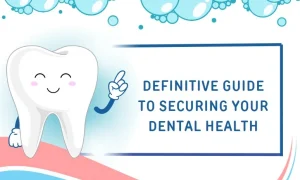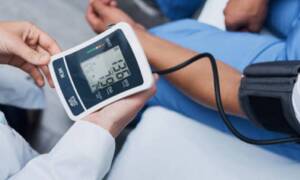From time to time, everyone gets worried or anxious. For instance, some while speaking in public, or when going through financial difficulty. However, for some people, anxiety becomes so frequent and so forceful, that it begins to take over their lives.
According to Carla Manly, PhD, a clinical psychologist in Sonoma County, California “worry is problematic when it creates chronically anxious thoughts, a depressed attitude, or feelings of being immobilized”.
To tell if your everyday anxiety and worry has crossed the line, see if you can relate to any of the below mentioned symptoms.
You worry too much
The distinction between an anxiety disorder and having regular anxiety is whether your emotions are causing a lot of dysfunction and suffering.
Humans are likely to become highly activated only by an actual threat but anxiety leaves a person feeling like some threat is always hovering. The constant surges of adrenaline create highs and lows that leave your mind and body absolutely exhausted.
Your mind is unable to shut off
Troubles either staying asleep or falling asleep are associated with a wide range of health conditions, both physical and psychological. It does not include tossing and turning with anticipation on the night before a big speech or a job interview.
But if you find yourself lying awake chronically, worried or agitated, about specific problems or nothing in particular, it might be a sign of an anxiety disorder.
Another tip-off that anxiety might be causing is waking up feeling wired. Your mind might be racing, and you’re unable to calm yourself down.
It’s a pattern that’s unconsciously perpetuated by anxious thoughts and behaviors. In other words, first you can’t sleep because you’re worried and then you worry because you can’t sleep.
You’re irrationally afraid
Some anxiety isn’t generalized at all but on the contrary, it’s attached to a specific situation or thing. For example heights, flying, animals, or crowds. If your fear becomes disruptive, overwhelming and way out of proportion to the actual risk involved, it’s a telltale sign of phobia, a type of anxiety disorder.
Although phobias can be crippling, they’re not obvious all the time. In fact, they may not surface until you confront a specific situation and discover you’re actually incapable of overcoming your fear.
3 Ways To Naturally Counteract Anxiety; There’s Nothing Wrong With You
You have constant tension in muscles
Whether it consists of clenching your jaw, balling your fists, or flexing muscles throughout your body, such restlessness often accompanies anxiety disorders. This symptom can be so pervasive and persistent that people who have lived with it for a long time may stop noticing it after a while.
Some people often have the need to chew on something, let it be pencils or anything that’s handy or keep their hands busy like fidgeting their fingers. Regular exercises can help keep muscle tension under control, but the tension may flare up if an unseen event or injury disrupts your workout habits.
You have Chronic indigestion
Anxiety starts in the mind, but it often manifests itself in the body through physical symptoms, like chronic digestive problems. Irritable bowel syndrome (IBS), is a condition characterized by stomachaches, cramping, bloating, gas, constipation, and/or diarrhea. It is basically an anxiety in the digestive tract.
IBS isn’t always related to anxiety, but the two can often occur together and make each other worse. Our gut is very sensitive to psychological stress and the physical and social discomfort of chronic digestive problems can make a person feel even more anxious.
You have stage fright
Stage fright is also an anxiety symptom. Most people get a few butterflies before addressing a group or being in the spotlight. But if the fear is so strong that nothing will alleviate it, or if you spend a lot of time worrying about it, you may have a form of social anxiety disorder called social phobia.
People with social anxiety tend to worry days and even weeks leading up to a particular event or situation. And when they do manage to go through with it, they tend to be deeply uncomfortable and may dwell on it for a long time afterwards, wondering how they were judged.
If You’re Experiencing These 7 Physical Symptoms, You’re Having Anxiety
You are self conscious
The anxiety is also provoked by everyday situations, where people with social anxiety disorder feel self-conscious, as if all eyes are on them, and they are often found blushing, trembling, nauseous, profusely sweating, or having difficulty in talking. These symptoms can be so disruptive that it becomes hard to meet new people, maintain relationships, and advance at work or school.
You suffer from Panic attacks
When in a continuous state of heightened arousal, our brain sends increased levels of cortisol and adrenaline throughout our body, which creates physical symptoms like breathing problems, a pounding or racing heart, numb or tingling hands, sweating, weakness or dizziness, chest pain, stomach pain, and feeling hot or cold. Everyone who has a panic attack, does not have an anxiety disorder but people who experience them repeatedly may be diagnosed with panic disorder. Such people live in fear about when, where, and why their next attack might happen, and they avoid places where attacks have occurred in the past.
You have OCD
The obsessive mindset known as perfectionism goes hand-in-hand with anxiety disorders. If you are constantly judging yourself and you have a lot of anticipatory anxiety about making mistakes or falling short of your standards, then you probably have an anxiety disorder.
OCD like PTSD, had long been viewed as an anxiety disorder. It can happen subtly. Compulsive behavior becomes an extreme disorder when the need to complete the behaviors begins to drive your life.
Do you feel the need to play with your hands, stop them from trembling time after time or keep volume on an even number to avoid irritation?
If so you just might be experiencing an anxiety disorder. Where anxiety disorders can be kept in check with pills and medicines, you should seek a therapist before it gets out of hand.














